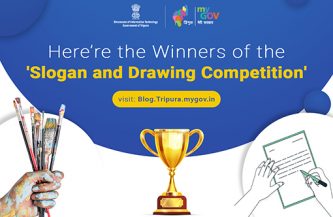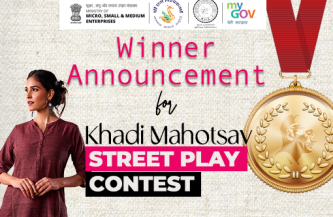Message from Moscow: India-Russia relationship is not in ‘Terminal Decline’

The proponents of the bilateral relationship will refer to the warm words PM Modi had for Russia and President Vladimir Putin. Those who would rather see the countries drift apart will point to the frank words of the PM on Ukraine.
Prime Minister Narendra Modi’s successful visit to Russia has once again demonstrated India’s ability to walk the geopolitical equivalent of a razor’s edge and give everyone something to cheer about while providing stability to ties with a consequential partner.
The proponents of the bilateral relationship will refer to the warm words Modi had for Russia and President Vladimir Putin: The synergy of the political vision of the world; the charting of new areas of economic and scientific cooperation, and the slew of agreements that will open the path to reaching a trade turnover of $100 billion by 2030.
Those who would rather see India and Russia drift apart will point to the frank words of the PM on Ukraine and the lack of significant military purchases. The PM’s formulations on Ukraine — “the death of innocent children causes great pain”, the solution to the war in Ukraine “cannot be found on the battlefield” and that “India is on the side of peace” and would do everything possible to achieve this peace — will echo across media for a long time. In today’s geopolitical scenario, the visit cannot be confined to the bilateral context. It will be seen as New Delhi’s emphatic endorsement of strong ties with Moscow despite the fighting in Ukraine, concerns about the Kremlin’s growing ties with Beijing and Western pressures to de-couple from Russia. India and Russia also share the goal of ushering in a multi-polar world.
On Ukraine, Modi managed to convince the Kremlin to discharge all Indians in the Russian armed forces and assist them in getting back home. It is estimated that 30 to 40 Indians, four of whom have reportedly been killed, are currently performing various tasks with the Russian armed forces. Additionally, India and Russia agreed that the Ukraine conflict had to be resolved peacefully “through dialogue and diplomacy… in accordance with international law and on the basis of the UN Charter in its entirety and totality”. Getting Russia to agree to this formulation in the joint statement doesn’t mean that India will immediately throw itself into mediation mode. Still, this wording could be the basis on which Moscow and West-backed Kyiv could be nudged to the negotiation table.
Moscow’s growing closeness with Beijing undoubtedly figured in the informal talks Modi had with Putin over dinner. During the discussions, Modi would have tried to gauge whether there has been any change in Moscow’s traditional position of neutrality in India-China ties.
While the content of the Modi-Putin chat on China is unlikely to come into the public domain for some time, Russian foreign minister Sergei Lavrov’s recent utterances on the subject suggest that there is no change in its long-standing stance. When referring to the India-China border clashes, at the recent Primakov Readings, Lavrov said that Russia looks at, “with understanding”, India’s current views on talks with China. Similarly, Putin would have sought an understanding of India’s growing relationship with the US and would have most probably been reassured that New Delhi would not allow ties with Washington to impinge on Indo-Russia relations.
On the bilateral front, the leaders would have spent considerable time discussing ways of boosting trade, which has been considerably hampered by the wide-ranging Western sanctions on Russia. Paradoxically, despite the war and related sanctions, India and Russia trade has grown exponentially from barely $10 billion before February 2022 to $65.7 billion in the last financial year. The two sides traded goods worth $17.5 billion in the first quarter of this year, suggesting that last year’s figures are likely to be exceeded.
This rapid growth is attributable to the massive spurt in the purchase of Russian oil, which was being sold at discounted rates following the imposition of sanctions. The manifold growth in trade also brought new problems — payments and trade imbalances. The need to avoid sanctions on payments to Russia has led to the revival of rupee-rouble, which now accounts for nearly 60 per cent of payments. But the balance of trade is massively in Russia’s favour, amounting currently to over $50 billion. If adequate measures are not taken soon, this is likely to increase as energy purchases by India are likely to grow in the future.
These issues would have figured prominently in the discussions but understandably, as in relation to military cooperation, specific details are not being announced. But a perusal of the joint statement issued at the end of the visit hints at possible new payment mechanisms and identifies a whole range of new areas — agriculture, automobiles — which could be growth areas for Indian exports. The two sides have also agreed to intensify efforts on maritime and land connectivity projects — International North-South Transport corridor, the Chennai-Vladivostok and Arctic Ocean Northern maritime corridors — among others.
While details are sparse, the joint statement suggests that the interruptions in the flow of military spares and delays in weapons platform deliveries are to be addressed primarily through the setting up of production units in India, probably under the ‘Make in India’ initiative.
Given the above, it does not appear that the India-Russia relationship is in “Terminal Decline” as suggested by some commentators. On the contrary, the Modi-Putin dialogue indicates that efforts are being made to make bilateral ties more resilient, considering the current geopolitical realities and the limitations of both countries.
Modi and Putin appear to understand that the future of stable Indo-Russian ties will depend on how deeply the two countries can involve themselves in each other’s national development projects.
writer is Nandan Unnikrishnan, Senior Fellow, Observer Research Foundation





